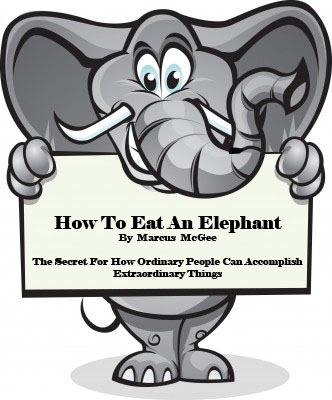By Marcus McGee June 21, 2021
Content Creators
How Ordinary People Can Accomplish Extraordinary Things
Most of us are aware of our limits. Some things truly are impossible, and yet many of the things we believe are beyond our capabilities and abilities are extraordinary things that we can actually accomplish, if we can figure out a way to go about it. Often, while we laud a content creator as we realize some prodigious work or accomplishment and call it “genius,” a closer look often reveals a stubborn, disciplined and systematic individual who has plodded along, often for years, to bring this content to the world.
A blockbuster movie, for example, begins with an idea, and sometimes the beginning of an idea. In order to go beyond a mere notion, this idea must be developed, a storyline must be created, characters must be conceived, a message must be encoded, and the denouement must have impact on a proposed audience. But that is just the beginning.
Next, the idea for this project must be pitched to someone who can get the wheels rolling toward production. Natural questions must be considered. Will the proposed audience be interested in the project, and why? Will proposed success with this audience make the project viable for investors? What is the scope of the project (how big is it)? How much will it cost? Will the project be profitable?
Once the first milestone is reached, then it is time to bring on other collaborators. A good producer is a business person with the knowledge and experience to create and administer a framework in which all project collaborators will work. This often includes finding the most suitable collaborators and contracting them to contribute to the project’s content. The collaborators will include investors, analysts, accountants, technical production staff, a camera crew, graphics creators (and/or special effects experts), directors, writers, actors and many other necessary collaborators.
Yet even before production begins, the producer must oversee the development of promotion and distribution, since a completed film project must have a proposed destination and marketing plan in place before the outlay of the greater part of investor money. A trailer must be developed, and versions of the project must be screened by sample audiences as production advances.
Production involves the work of these many collaborators in the creation of unique content: actors who are working with other actors and directors, who are working with other directors (casting, photography) and producers, who are working with other producers (sets, costume, technical, sound, locations, permits, finance, editors), promotional and distribution companies.
It’s no different for the double-platinum music album, the Emmy-award winning television series, the most popular plays on Broadway or an incredible spoken word presentation. Success requires understanding how to go about doing things.
It begins as an idea, as all extraordinary accomplishments begin as mere ideas. Unfortunately however, most great ideas die because the thinkers of these ideas see what is extraordinary as “impossible,” or beyond their abilities. Not so.
The problem, in many cases, involves thinking too big, though not in terms of ambition. In reality, every big thing can be broken down to two things, half as large, which can both be broken down to two things, one-quarter as large, and so on and so forth. Or a complex thing can be divided into to separate essential elements, and these themselves can be divided into separate components, which can be broken down into manageable pieces, which can be accomplished on an individual basis. It’s like eating an elephant.
The good news: once you learn to eat an elephant, you can do it over and over, and if you have several elephants to eat, you can learn to juggle elephants as you eat them. Yet if you are truly fearless, you can eat even larger things than elephants.
Please Share Your Experiences
What is the most extraordinary thing you have ever done?
What was (were) your greatest obstacle(s)?
How were you able to accomplish it?
How did it change the way you see challenges?

